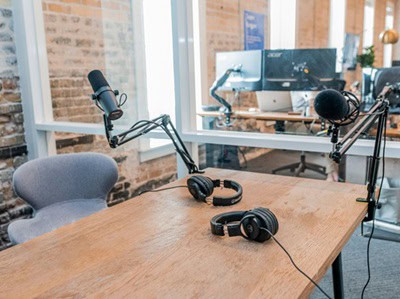A Podcast about SMART Recovery
By Tom Horvath, PhD

This podcast about SMART Recovery runs one hour and 10-minutes, and is an interview with sections on:
- the early history of SMART
- the four foundations of SMART’s approach, which is self-empowering, science-informed, progress-oriented, and holistic
- the efficacy of SMART (which based on the evidence thus far is comparable to AA)
- the importance of staying open to new ideas
- how SMART’s language will evolve over time (and already has)
- how SMART’s tools ultimately help someone arrive at new interpretations of themselves, their worlds, and their futures
- how SMART welcomes anyone with an addictive problem (any substance or activity, any stage of change, any level of problem, and any goal—abstinence, moderation, reduced use, reduced harm)
- the transition away from the terms “alcoholic” and “addict” (with the release of DSM-III in 1980)
- how therapists can use SMART (and other mutual help) groups to expand the range of options they provide their clients.
- why the idea that SMART has a “program” is misleading because there is no specific beginning and end, no specific set of tools or techniques, and no clear evidence that the tools/techniques in SMART are in themselves effective
- how SMART has many types of meetings, based in part on each facilitator’s preferred way of operating
- how government could advance the collective process of change by funding mutual help groups (which are much more cost effective than treatment)
- how common factors for effectiveness exist in mutual help groups, just as they do in psychotherapy (we want a therapist who is empathic, regardless of the approach they use)
- how both psychotherapy and mutual help are still far from being completely understood; we do not know precisely what makes them effective
- how members of diverse communities, even though not “in recovery,” could learn to facilitate a SMART meeting and bring it into their community (SMART does not require any specific background in facilitators)
Because the interviewers are psychology professors and many graduate students will listen to these podcasts, there are also moments devoted to building one’s career as a psychologist (in particular, when to “go along” and when to take a new path).
Click here to listen to the podcast about SMART Recovery.
This website offers over 50 podcasts since 2020, including interviews with two other members of SMART’s Global Research Advisory Committee, Katie Witkiewitz (mindfulness based relapse prevention; non-abstinent recovery) and John Kelly (stigma in addiction and courses of recovery) and with other luminaries including Bill Miller (motivational interviewing), Barbara McCrady (alcohol behavioral couple therapy) , Stephen Higgins (contingency management), and Jim Murphy (brief interventions).
Liked this article? You might also be interested in: SMART Recovery at 30.
